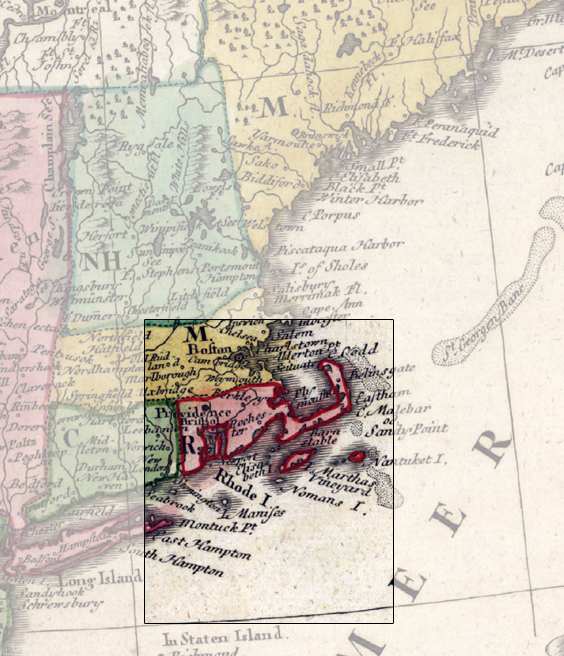Rhode Island
The voyage of the Sally was one of roughly a thousand African slaving ventures mounted by Rhode Islanders in the century before the formal abolition of the transatlantic trade in 1807. Compared to the number of slaving voyages launched from Portugal, Britain, Spain, and France, this number seems modest, but in the American context it is exceptionally large. More than sixty percent of all slave ships launched from North America -- in some years more than ninety percent -- sailed from a single colony and state: Rhode Island.
While the Sally embarked from Providence, the vast majority of Rhode Island slave ships sailed from Newport, the bustling seaport perched at the entrance of Narragansett Bay. "The inhabitants of Rhode Island, especially those of Newport, have had by far the greatest share of this traffic of all the United States," declared a local minister in 1787. "The trade in the human species has been the first wheel of commerce in Newport, on which every other movement in business has chiefly depended. That town has been built up, and flourished in times past, at the expense of the blood, the liberty, and the happiness of the poor Africans..."
In the late eighteenth century, Rhode Island slave traders faced new opposition from a small but vocal anti-slavery movement. In 1784, Rhode Island enacted a Gradual Abolition Act, putting slavery in the state on the road to extinction. Three years later, Rhode Island became the first state in the Union to bar its citizens from participating in the transatlantic slave trade. Unfortunately, the law was poorly enforced and widely flouted by slave traders, as were federal laws, enacted in 1793 and 1800, prohibiting American ships from carrying slaves to ports outside the United States. But the mounting legal and political pressure had an impact on Rhode Island traders, many of whom began to operate out of Bristol, further up the bay. With the appointment of one of the state's most notorious traffickers as federal customs inspector in Bristol in 1803, slave traders operated out of the city with virtual impunity, continuing even after the U.S. Congress formally abolished all transatlantic slave trading in 1807. There are records of Africa-bound ships being outfitted in Bristol as late as 1819.
Map Details
Charte über die XIII Vereinigte Staaten von Nord-America
F. L. Güssefeld und hrsg. von den Homænnischen Erben., 1784.
Library of Congress Geography and Map Division, Washington, D.C.

